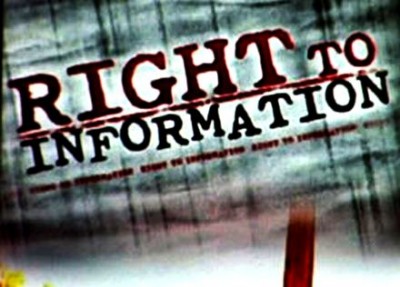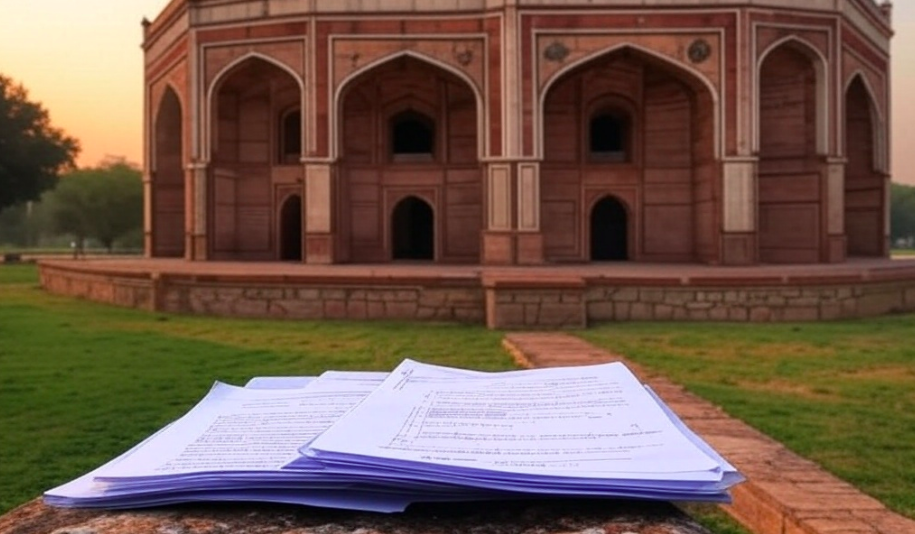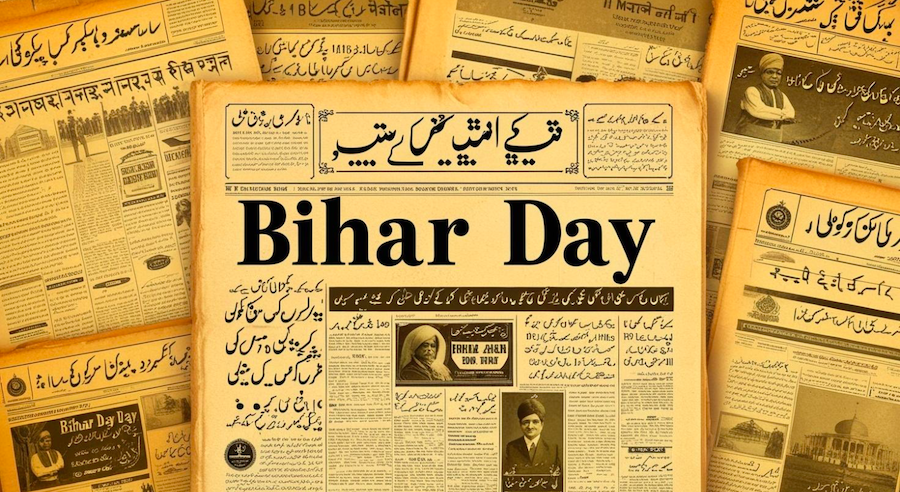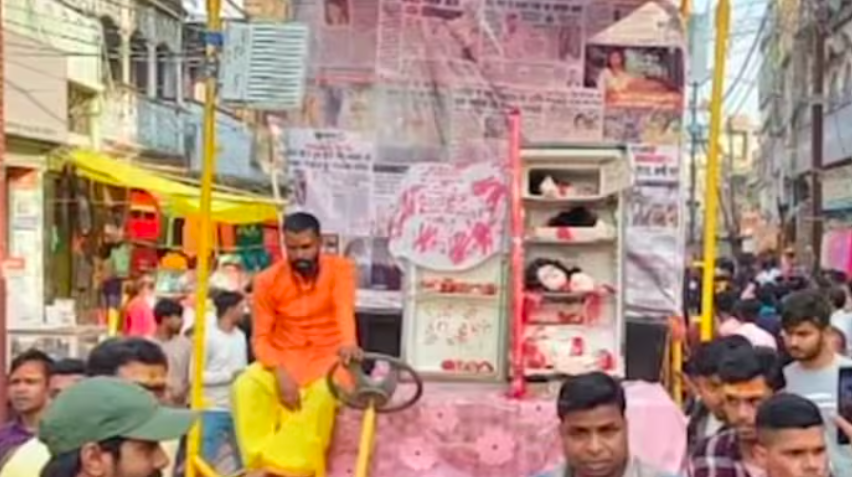Krishnaraj Rao
The passing of the Right to Information Act 2005 changed the game in irreversible ways. Overnight, it transformed people’s attitude and behavior towards government in ways that even the most far-sighted netas, babus or intellectuals had never foreseen. Several earlier legislations were dramatic in content (e.g., Prevention of Corruption Act 1988 and Human Rights Act 1993) but few could excite the citizenry.
Civil society’s energetic response to the Right to Information Act was due to the efforts of a dozen or so early pioneers, who painstakingly trained people and prepared the ground. They enabled tens of thousands of activists to spring up in the cities and villages of India, exerting tremendous influence on their local self-government bodies on an almost daily basis – a continuous ongoing Satyagraha by the common man at all levels of government!
Stung by this, many state governments including Maharashtra are now trying to dilute the power of the RTI Act in various ways. But, rather than being fearful and pessimistic, we need to go forward with clarity. Rather than becoming demoralized, we must prepare to adapt our behavior to suit the governance environment.
Let us plan by first looking at the big picture.
THE BEGINNINGS – LIBERALIZATION OF MEDIA IN 1991
The Congress government opened up our access to information – not in 2005 but 15 years earlier. Before his assassination in 1991, Prime Minister Rajiv Gandhi opened the information floodgates. Soon afterwards, there was an explosion of internet and television channels like Star TV and CNN.
Earlier, all government information dissemination was tightly controlled. Doordarshan and All India Radio (AIR) gave out a strictly sarkari version of the facts. We were given doctored news about all events/ For instance, we used to hear about national disasters with underplayed death tolls many hours after the disaster occurred. News about ministries and government departments came in a thin trickle from the Press Information Bureau (PIB), or the Press Relations Officers of government organizations.
We the People depended on journalists to give us the inside stories. Long before the UPA government passed RTI Act 2005, in the early 90s, investigative journalists such as Arun Shourie and S Gurumurthy exposed AR Antulay’s donations-for-cement-quota, Rajiv Gandhi’s Bofors kickbacks and Reliance customs’ duty evasions. In the 1990s and early 2000s, Sucheta Dalal exposed financial frauds like the artificial bull runs of Harshad Mehta and Ketan Parekh in the stock markets, and the misuse of UTI’s US-64 scheme funds for private gains. Many investigative journalists were helped by whistleblowers inside the system.
IRREVERSIBLE SHIFT OF POWER AFTER RTI ACT 2005
Today, we have direct access to the inside stories. Rti activists have as much or more information than journalists. For media-persons, rti activists are a major source of inside documents and facts. In this age of coalition governments where opposition parties have been co-opted, RTI activists, whistleblowers and media are the only real opposition.
Many citizens from all walks of life now understand government paperwork in the context of the rules, laws, norms, procedures and manuals. They follow the paper trail and regularly expose corruption. Almost every day, there is a fresh scam in the papers and the TV channels, that has been revealed by an RTI activist.
HOW TO SHARPEN THE RTI TOOL
Besides exposing corruption, the RTI Act empowers common people by following up complaints and application letters with various authorities. To sharpen this tool, we must work simultaneously at several levels:
1) DO YOUR INTERNET RESEARCH & NETWORKING. AVOID UNNECESSARY RTI APPLICATIONS. Much of the information that we seek is already available in public domain on the internet. Google for it. Or, even if not on the internet, the papers that we seek may be with other activists. We just need to get in touch with them by using hubs like HumJanenge@yahoogroups.co.in, karmayog@yahoogroups.com and www.RTIIndia.org . Most RTI activists are usually very happy to share information and give helpful tips; there is great camaraderie and fellowship, especially in the online community.
2) SHORT & CLEAR RTI APPLICATIONS. We must focus on filing sensible RTI applications and minimize appeals. We must mentor the common man to ask for Information strictly as defined in these sections of the Act: http://tinyurl.com/RTI-
As far as possible, avoid queries or requests for individual facts and figures by drafting applications that ask only for copies of various kinds of existing documents: http://tinyurl.com/
3) MENTOR THE PUBLIC INFORMATION OFFICER & FIRST APPELLATE AUTHORITIES: We need to go out of our way to educate the PIOs and FAAs, who are generally ill-informed and not inclined to study laws and rules. By citing the correct sections in our RTI application and in our appeals, we can exert moral authority on them to stop denying information. See the highlighted part of this specimen RTI application: http://tinyurl.com/RTI-Appl-
Also, we can show PIOs and FAAs these sections: http://tinyurl.com/RTI-
4) PUT PRESSURE ON GOVT FOR TRANSPARENT SELECTIONS OF INFO COMMISSIONERS. Amazingly, most Information Commissioners (who are retired bureaucrats and political cronies) know less about the RTI Act than average RTI activists. They also lack a judicious bent-of-mind, or the commitment to do a tough 9-to-5 job, which is the job-requirement. They believe that becoming an Information Commissioner is a five-year post-retirement benefit. Anna Hazare himself noted this, and repeatedly opposed these political appointments, but to no avail. See Anna’s letter to the CM written in Marathi: http://tinyurl.com/
English translation of Anna Hazare’s letter: http://tinyurl.com/
A Maharashtra government committee was constituted in October 2010 headed by Anna Hazare, and with Arvind Kejriwal, Vinita Deshmukh and some bureaucrats as its members. The sole purpose of this committee was to recommend to the state government a set of transparent procedures for appointment of Information Commissioners. Although there is a whole department in Mantralaya devoted to fulfilling Anna Hazare’s demands, this committee has not met even once for reasons best known to him. In the absence of such a big push, Maharashtra is languishing. Appointment of a fresh batch of Information commissioners is about one year overdue, and there seems to be no end in sight. The queue before the Information Commission has grown to over 24,000. The average RTI appellant of Maharashtra will have to wait at least two years for a second appellate hearing. (Annaji, are you listening? Do you care?)
5) PUT PRESSURE ON INFO COMMISSIONERS TO MAKE THEM WORK FOR THEIR SALARY. We the People need to exercise vigilance on CICs and SICs to ensure that they do a decent amount of work every day and every week. Also, we need to ensure that they exercise the full extent of their powers on behalf of the common man, and not protect non-transparent bureaucrats by pleading helplessness. See their powers and functions here: http://tinyurl.com/RTIAct-
6) PUT PRESSURE ON STATE GOVTS, COURTS ETC. TO FRAME PEOPLE-FRIENDLY RULES. The powers and duties of various State players vis-à-vis rule-making arise from these sections: http://tinyurl.com/RuleMaking-
Such rules can only facilitate the Right to Information given by the RTI Act; they cannot curtail or restrict the Right, as that is against the intent of the Act. But there has been a wave of bad rule-making, intended to minimize the transparency created by the sunshine law. Exceeding their rule-making powers, state governments, courts, state legislatures etc. have passed original rules or amendments to rules that go against the letter and spirit of the Act. The rules of Orissa and Arunachal Pradesh are truly crippling to information-seekers. Activists in such states are isolated in their battles, as their counterparts in other states do not empathize with them. Using a divide-and-rule policy, Karnataka, Bihar and most recently, Maharashtra have passed discriminatory amendments to rules. In other states like Jharkhand, Madhya Pradesh and Chhattisgarh, proposed amendments are hanging like a sword about to fall. And lest we feel encouraged to go to court, the high courts of many states have framed the worst possible rules for RTI! All such arbitrary rules will have to be contested in the Supreme Court. Rather than people of each state fighting their own battles, RTI activists across the country must unite and fight.
7) CULTIVATE CONTACTS WITH WHISTLEBLOWERS IN THE ADMINISTRATION and in the private and corporate sector. So, even if government tries to restrict our access, we will keep getting our information from whistleblowers. Thanks to privatization, government outsourcing, and public-private-partnership (PPP) projects, the iron curtain between civil society and government employees has collapsed. While this has created great scope for corruption, it has also made government porous. And so, RTI activists must reach out to whistleblowers in various government departments, companies etc. RTI activists and whistleblowers must collaborate to challenge corruption. Not being public servants gives RTI activists substantial protection from the backlash, and so they can more safely blow the whistle if the proper documents are given to them. Yes, there will be risks, but we are not strangers to risk-taking, are we?
All these above steps are equally important. Our access to information will expand if we do all these. Obviously, a large number of us will have to work independently to achieve this goal. There is plenty of room for us all — activists of all temperaments and beliefs.
In many cultures, it is thought that the greatest good fortune that people can have is the opportunity to fight a war on the side of truth and goodness. It would be a shame to let such good fortune go waste!
(Krishnaraj Rao is a prominent Right-to-Information activist and journalist based in Mumbai. He can be reached at thebravepedestrian@gmail.com )
The views expressed in this article are the author’s own and do not necessarily reflect BH’s editorial policy.










